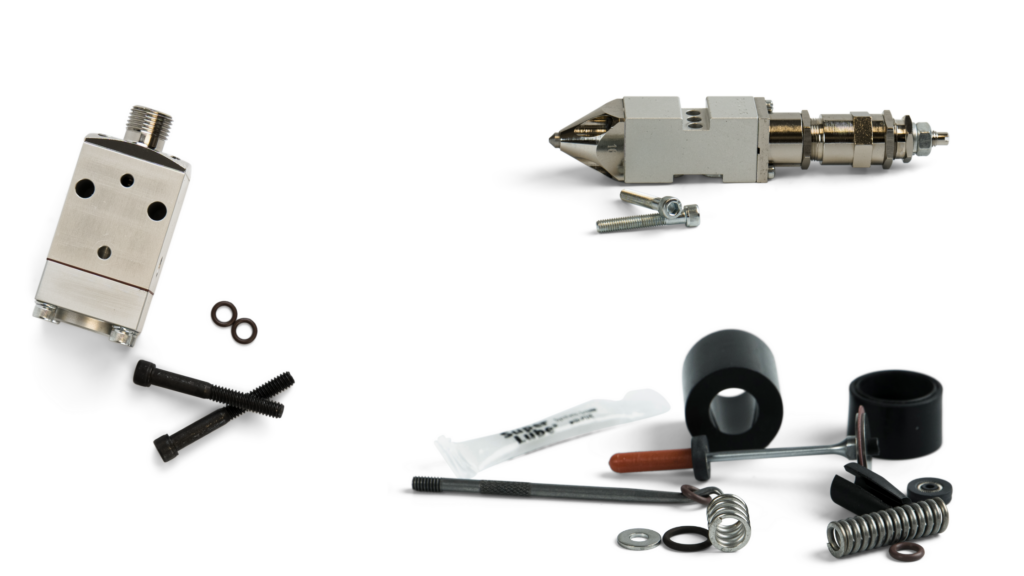Glue Modules: What is the Cause of My Leaks?
Being knowledgeable regarding your glue guns/modules can help in diagnosing issues in adhesive systems and industrial applications. Are you having leaking, dripping, stringing or stoppage issues?
Understanding the Components of Glue Modules
The glue applicator gun body only controls the temperature and is a go between hydraulically from the hose to the module that is mounted on the gun body.
Glue modules are valves that control the glue flow out of the adhesive applicator nozzle. Opening of the module is triggered either by compressed air or electricity, depending on the type of system you have. Closing of the module is controlled by either compressed air, electricity or spring.
Common Issues with Glue Modules
For the module to open, the needle must lift off the seat to allow adhesive to flow. To close, the needle must seat firmly and completely to form a seal on the seat to stop the adhesive flow and create optimal adhesive bonding.
The needle seating process can be significantly affected by pressure, adhesive viscosity, compressed air, adhesive cleanliness or spring used to close the needle.
If adhesive is too thick, the spring (AO/SC) could have issues pushing the needle closed, therefore, preventing a tight shut off seal.
Dirty air flow can cause module to open/close improperly and dirty glue can produce buildup at the seat, causing loss of a tight seal. Spring tension loss over time will eventually cause affect closing time.
Other factors that affect performance are worn seals and worn nozzles.
Contact us today to learn how we can help support your equipment, parts and service needs.

